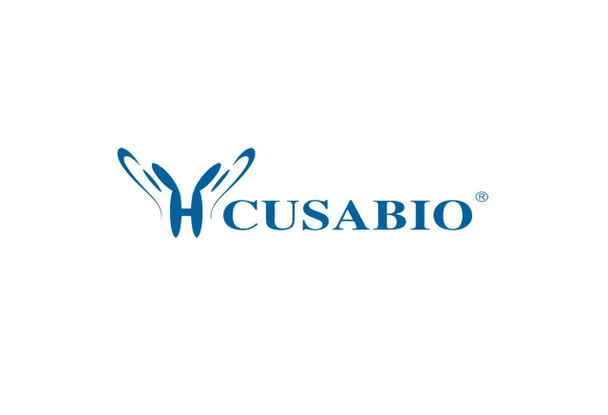Cusabio Polyclonal Antibodies
SMURF2 Antibody, Biotin conjugated | CSB-PA872532ED01HU
- SKU:
- CSB-PA872532ED01HU
- Availability:
- 3 to 7 Working Days
Description
SMURF2 Antibody, Biotin conjugated | CSB-PA872532ED01HU | Cusabio
SMURF2 Antibody, Biotin conjugated is Available at Gentaur Genprice with the fastest delivery.
Online Order Payment is possible or send quotation to info@gentaur.com.
Product Type: Polyclonal Antibody
Target Names: SMURF2
Aliases: E3 ubiquitin-protein ligase SMURF2 (hSMURF2) (EC 2.3.2.26) (HECT-type E3 ubiquitin transferase SMURF2) (SMAD ubiquitination regulatory factor 2) (SMAD-specific E3 ubiquitin-protein ligase 2), SMURF2
Background: E3 ubiquitin-protein ligase which accepts ubiquitin from an E2 ubiquitin-conjugating enzyme in the form of a thioester and then directly transfers the ubiquitin to targeted substrates. Interacts with SMAD1 and SMAD7 in order to trigger their ubiquitination and proteasome-dependent degradation. In addition, interaction with SMAD7 activates autocatalytic degradation, which is prevented by interaction with SCYE1. Forms a stable complex with the TGF-beta receptor-mediated phosphorylated SMAD2 and SMAD3. In this way, SMAD2 may recruit substrates, such as SNON, for ubiquitin-mediated degradation. Enhances the inhibitory activity of SMAD7 and reduces the transcriptional activity of SMAD2. Coexpression of SMURF2 with SMAD1 results in considerable decrease in steady-state level of SMAD1 protein and a smaller decrease of SMAD2 level.
Isotype: IgG
Conjugate: Biotin
Clonality: Polyclonal
Uniport ID: Q9HAU4
Host Species: Rabbit
Species Reactivity: Human
Immunogen: Recombinant Human E3 ubiquitin-protein ligase SMURF2 protein (1-748AA)
Immunogen Species: Human
Applications: ELISA
Tested Applications: ELISA
Purification Method: >95%, Protein G purified
Dilution Ratio1:
Dilution Ratio2:
Dilution Ratio3:
Dilution Ratio4:
Dilution Ratio5:
Dilution Ratio6:
Buffer: Preservative: 0.03% Proclin 300
Constituents: 50% Glycerol, 0.01M PBS, PH 7.4
Form: Liquid
Storage: Upon receipt, store at -20°C or -80°C. Avoid repeated freeze.
Initial Research Areas: Epigenetics and Nuclear Signaling
Research Areas: Epigenetics & Nuclear Signaling;Stem cells






